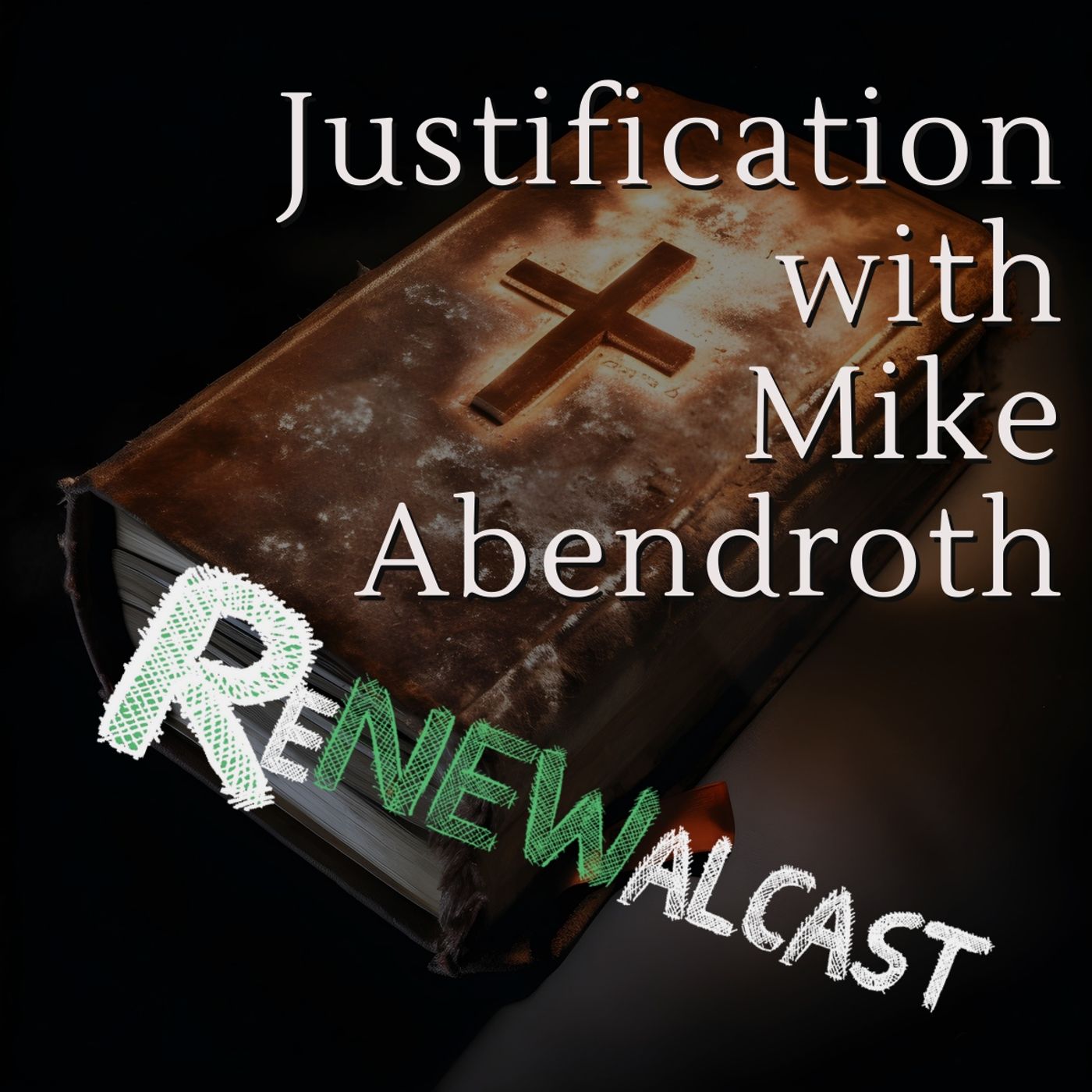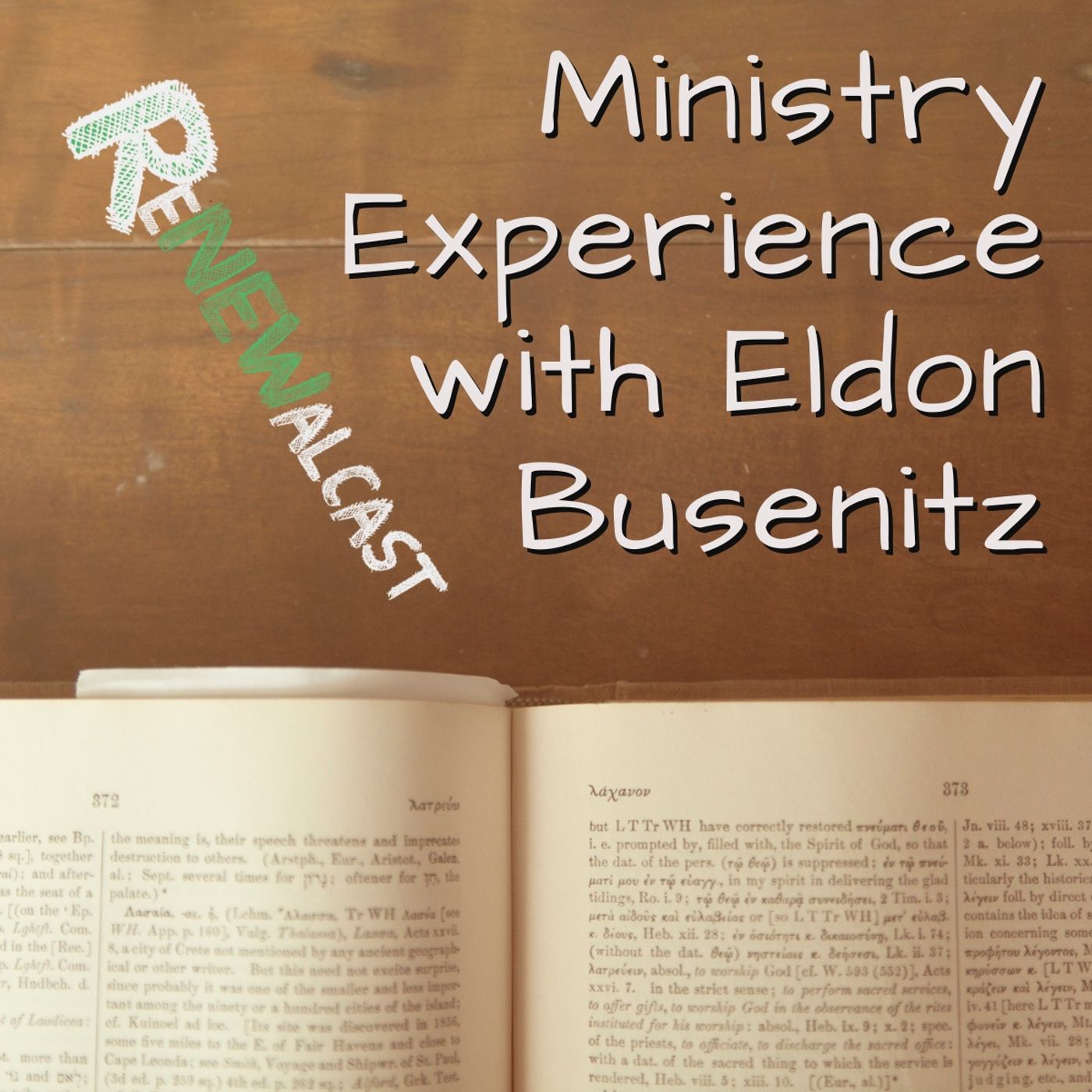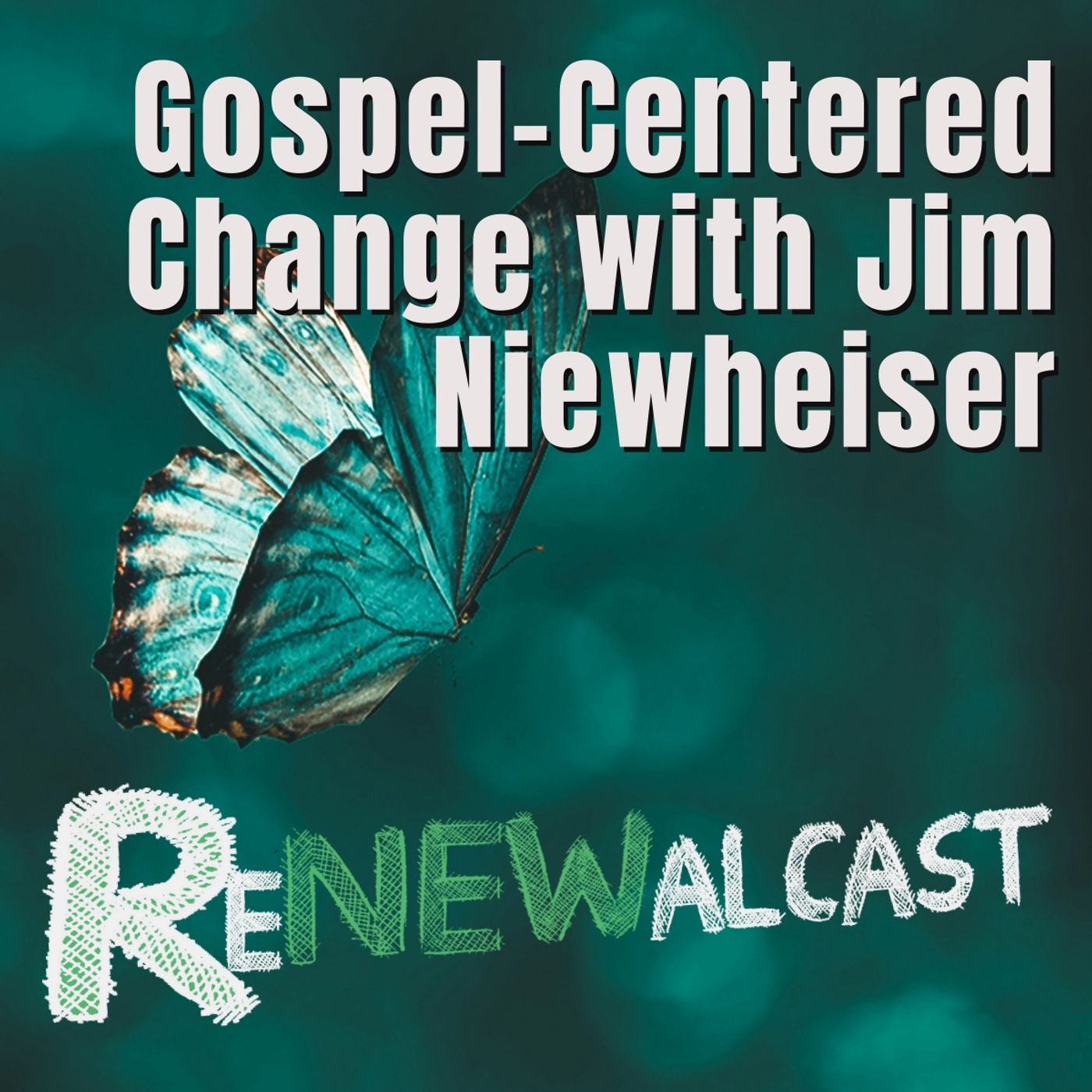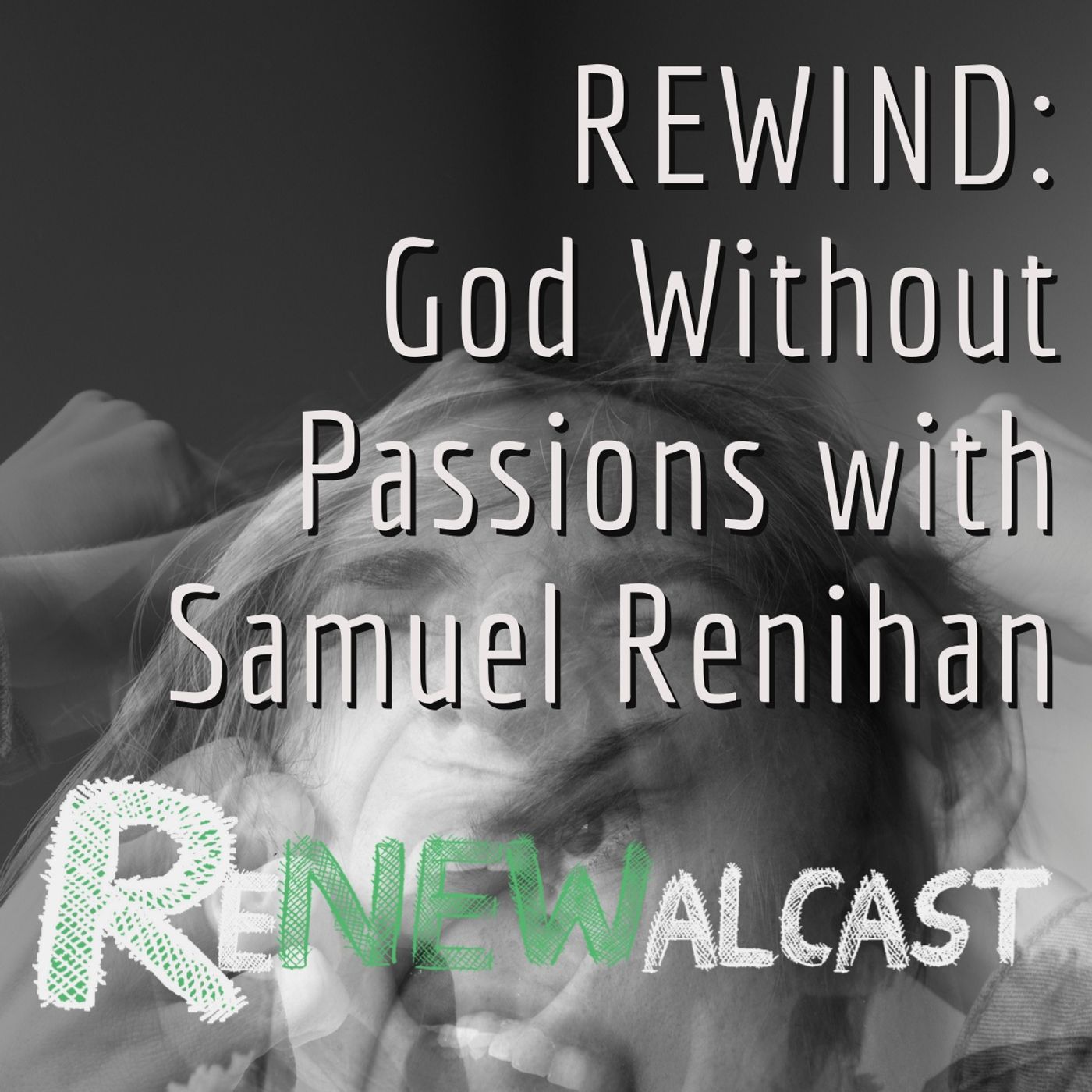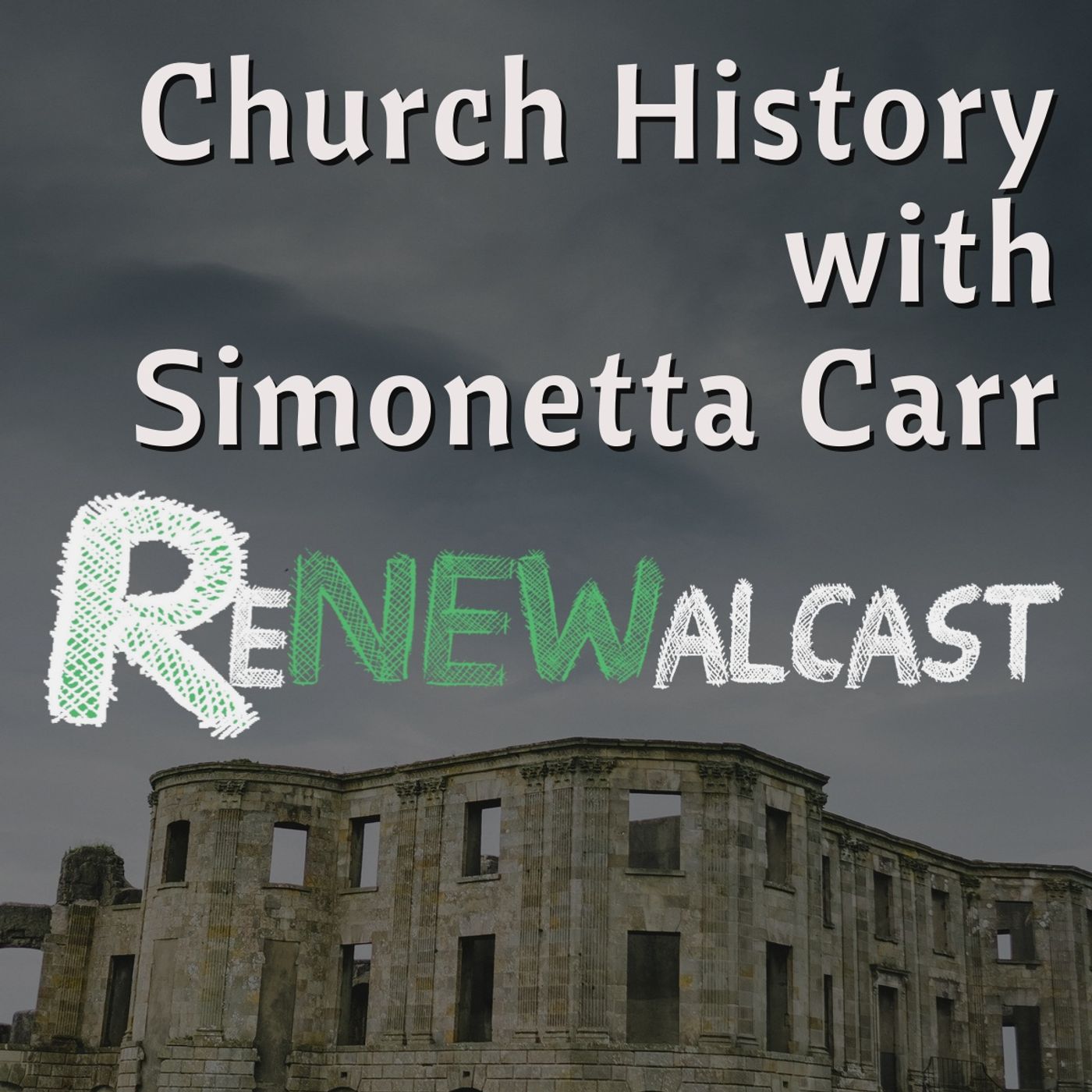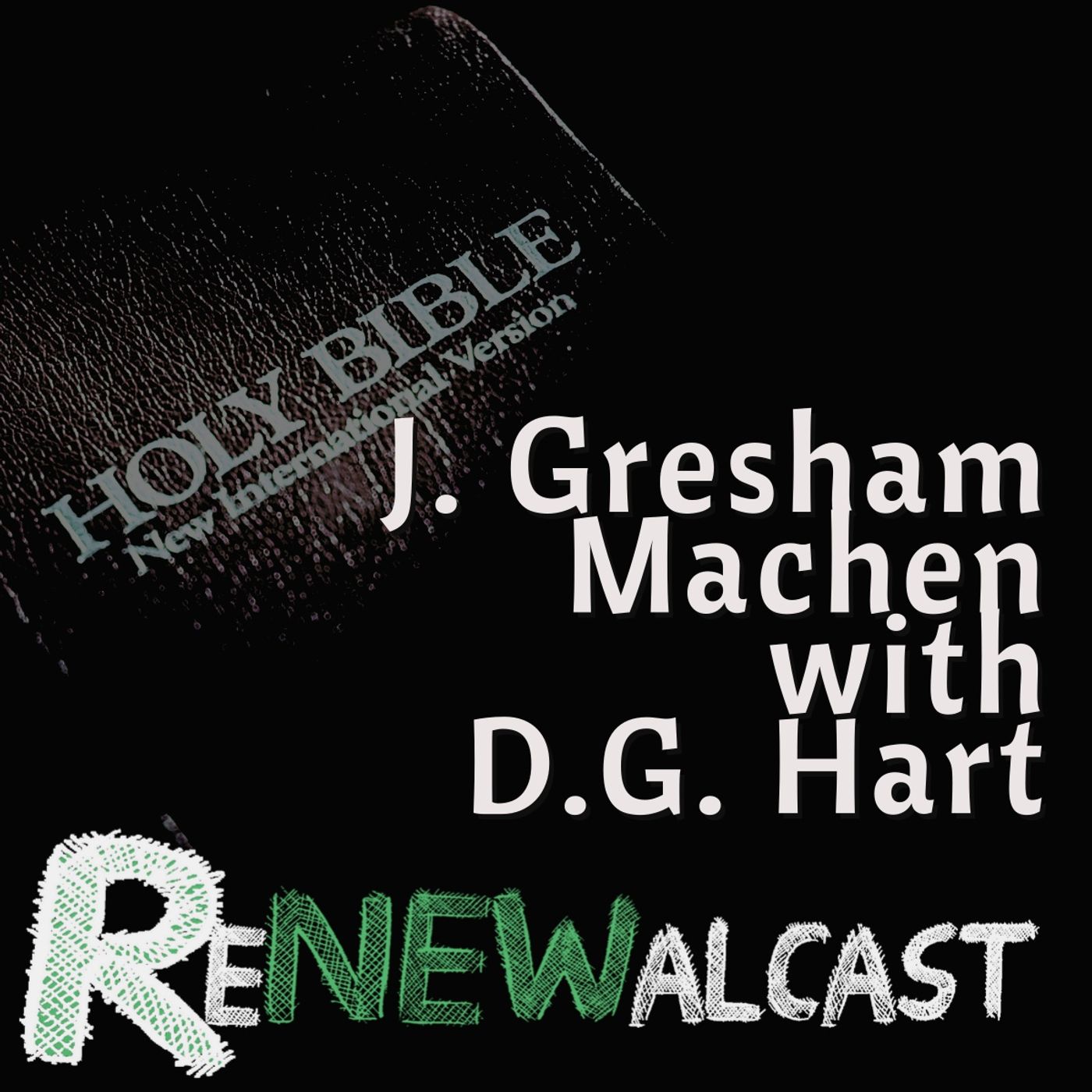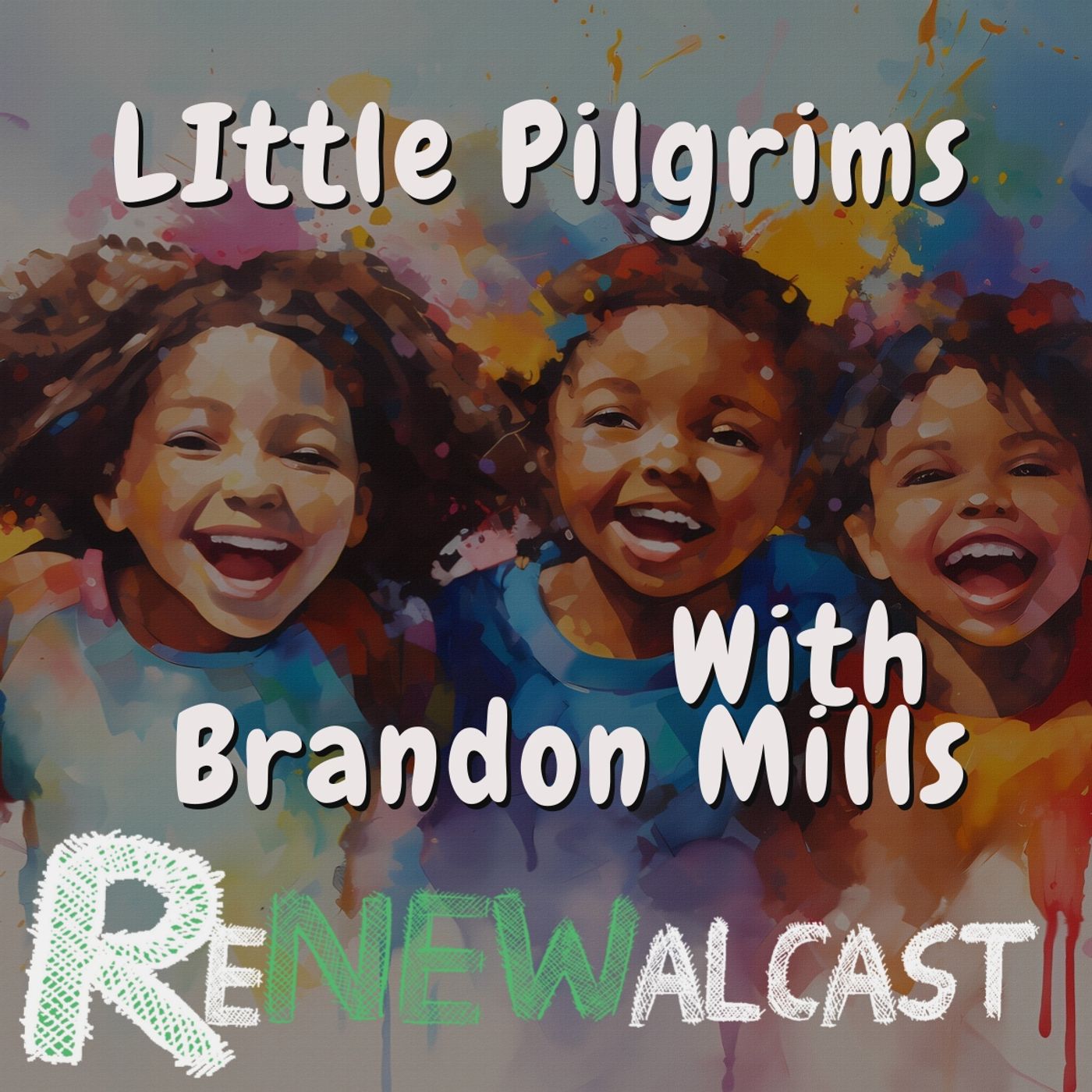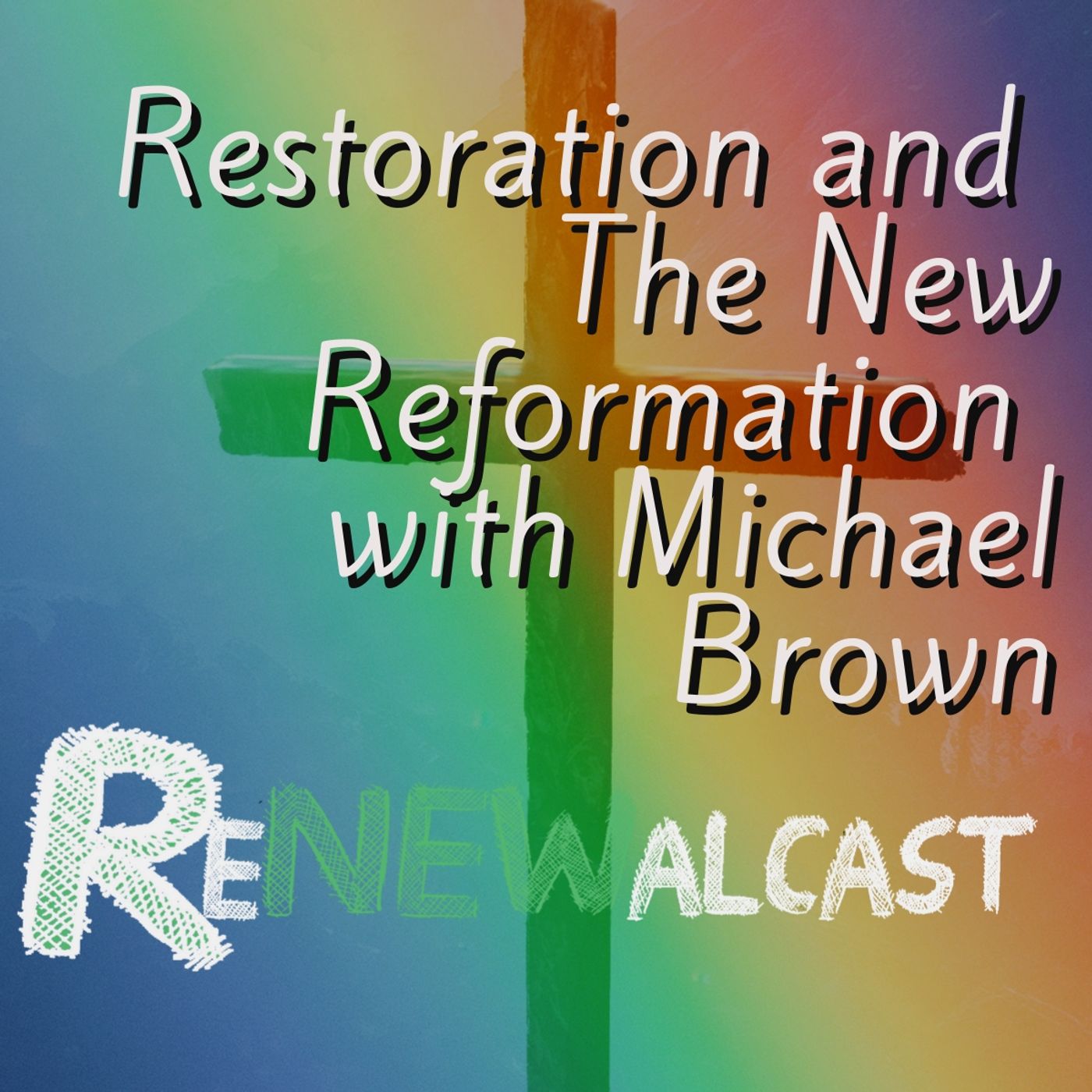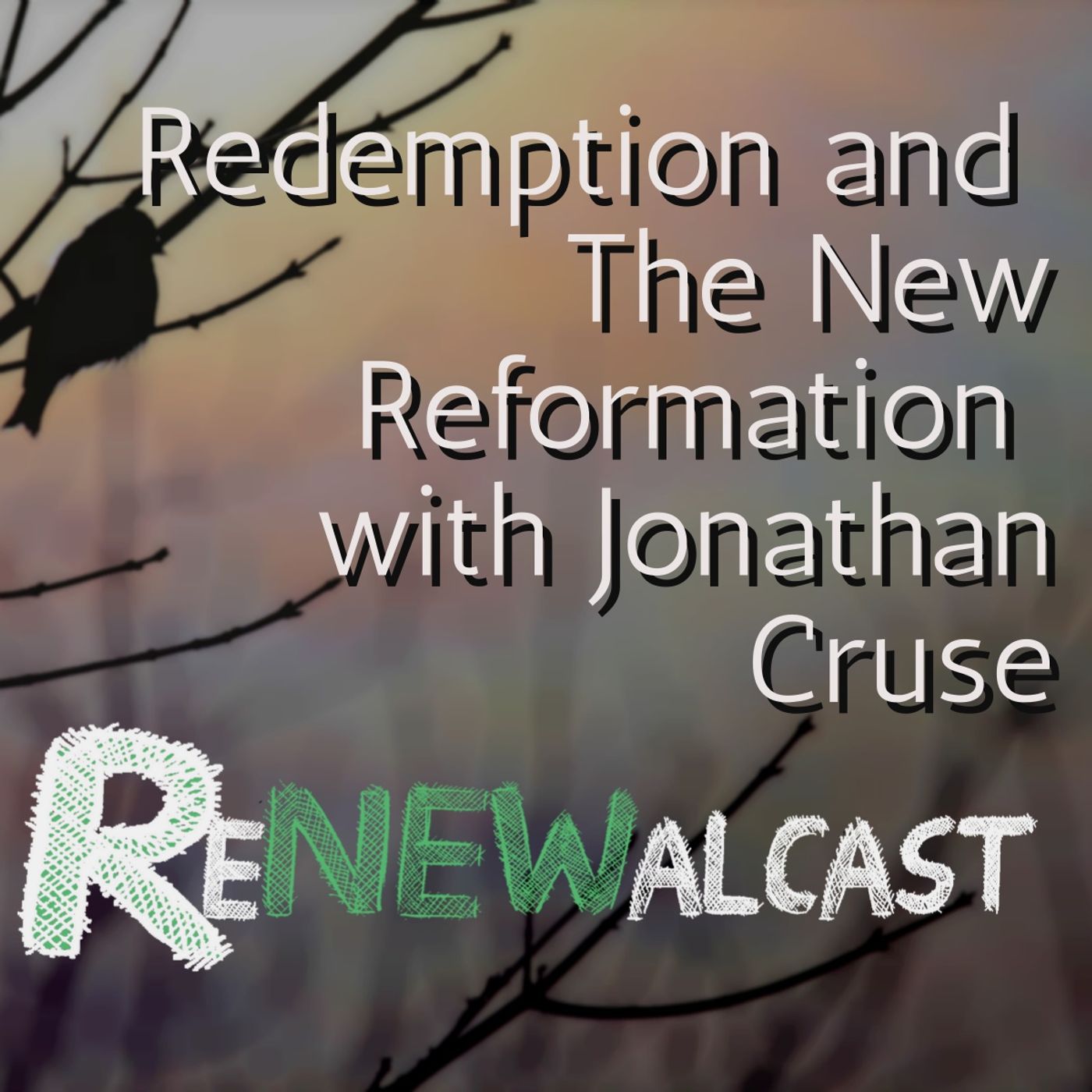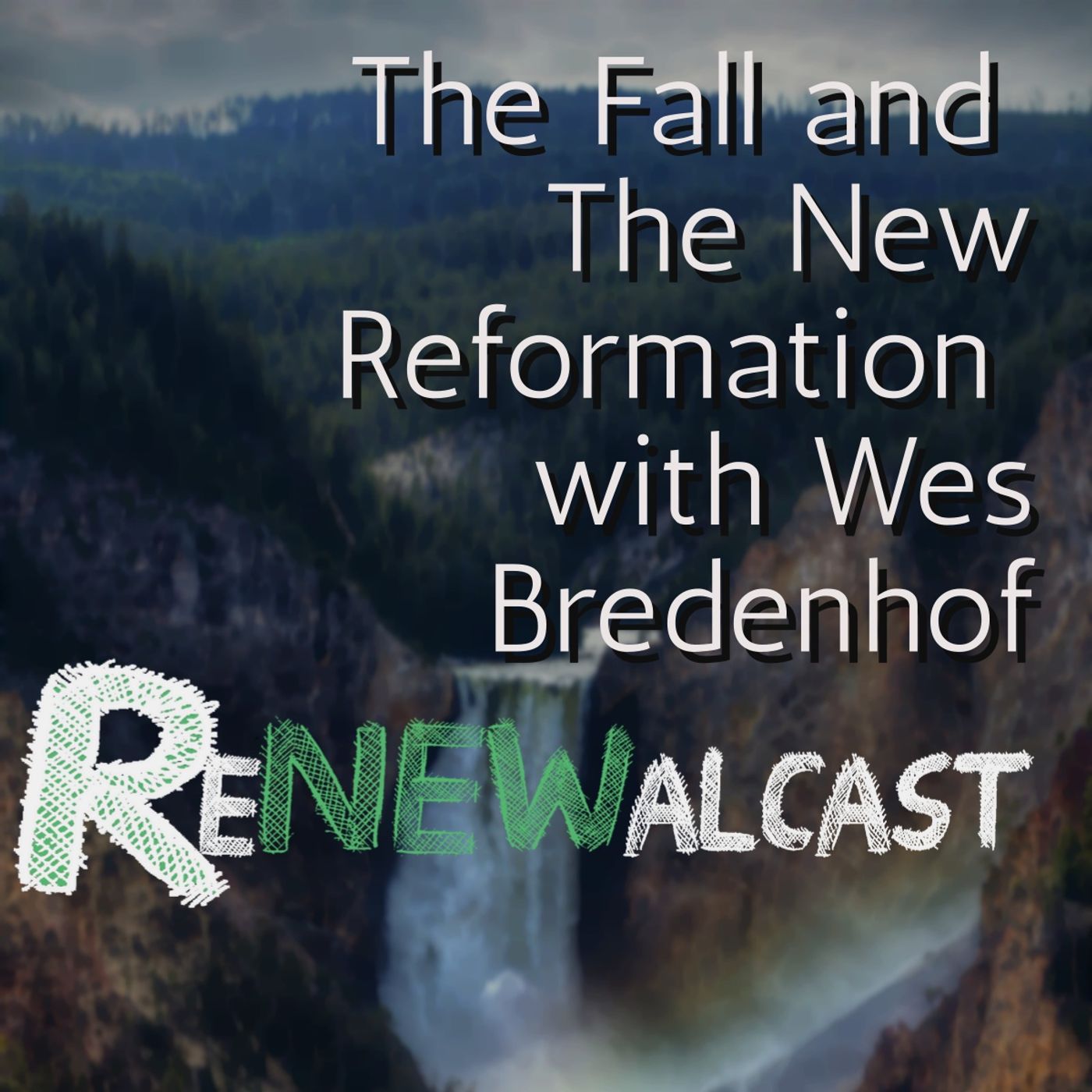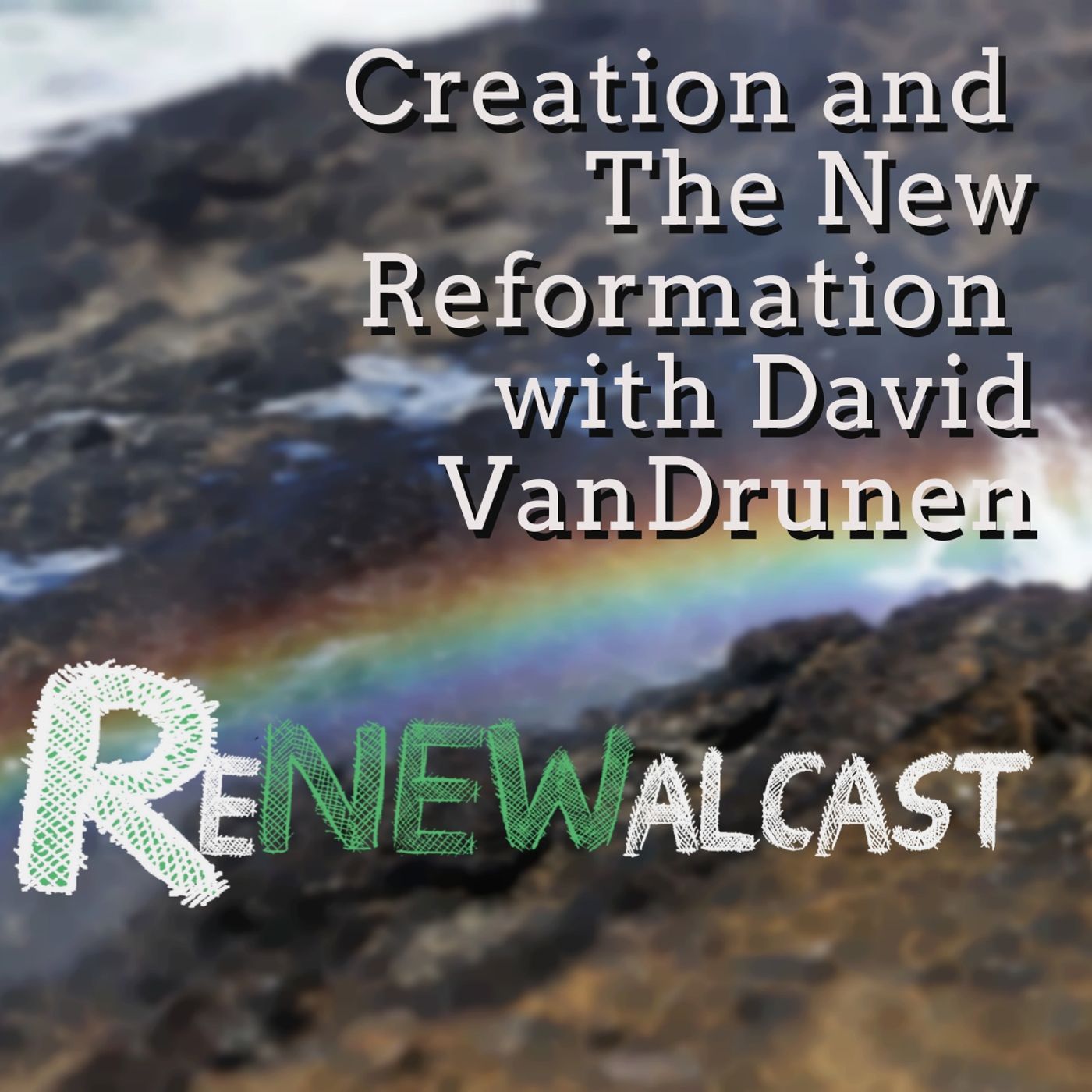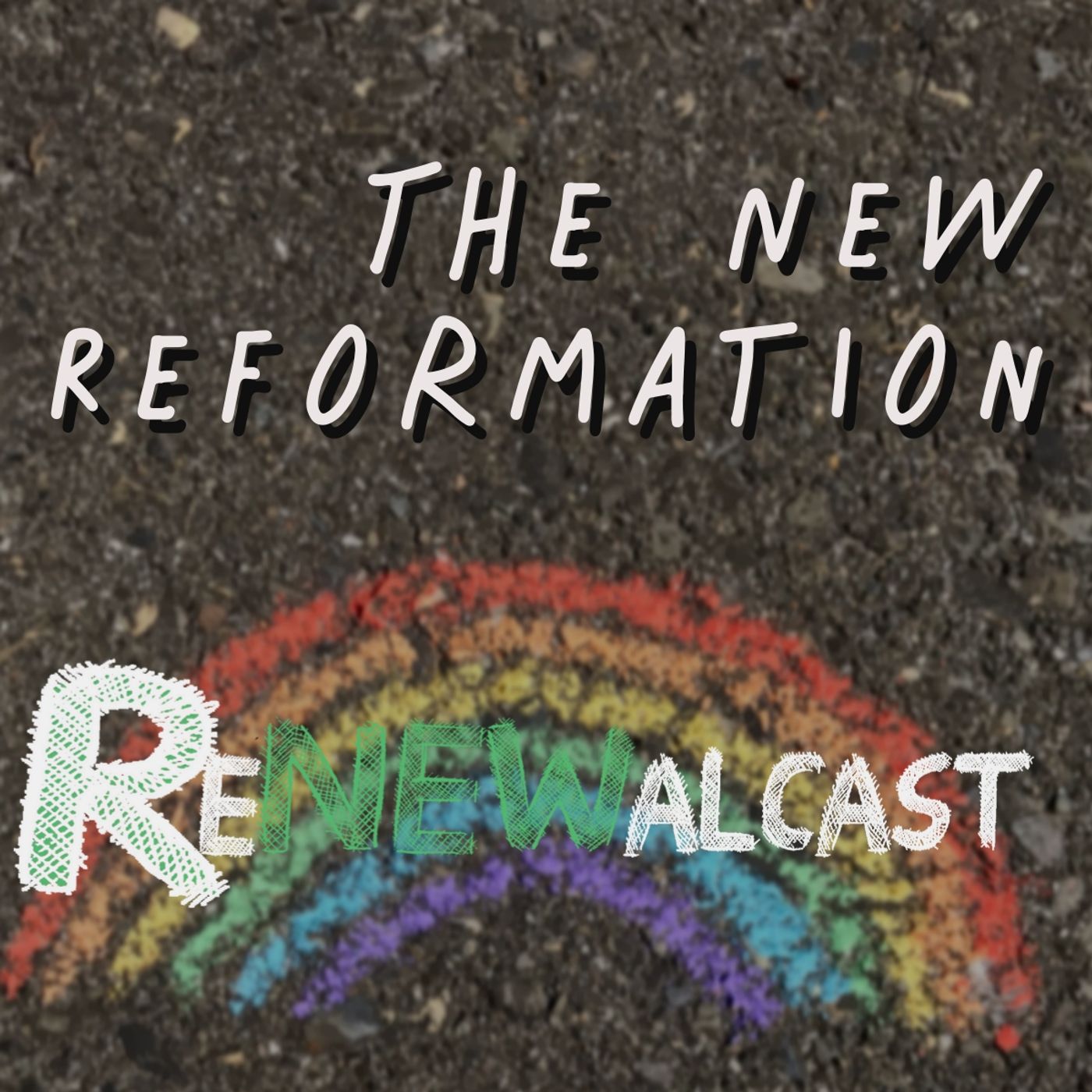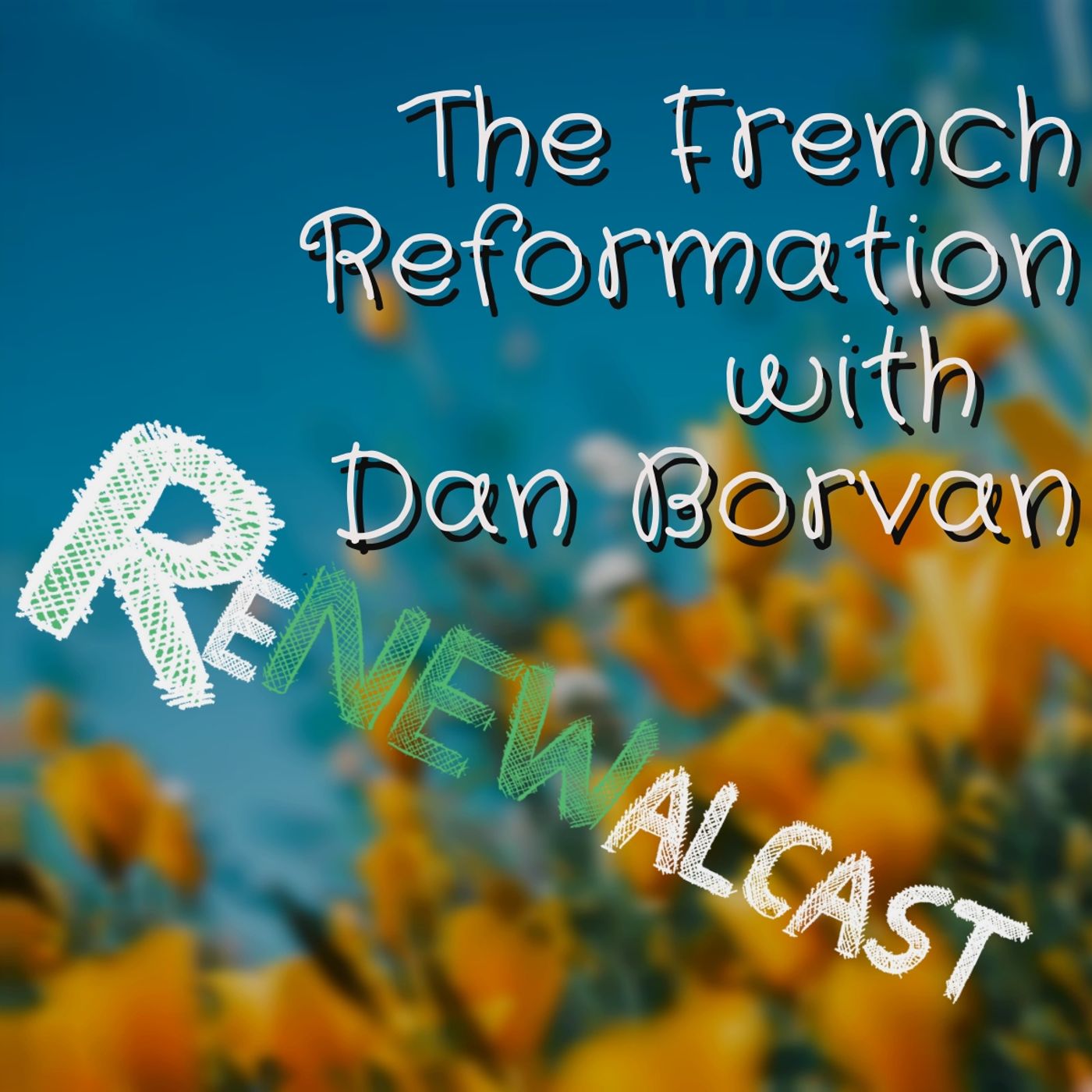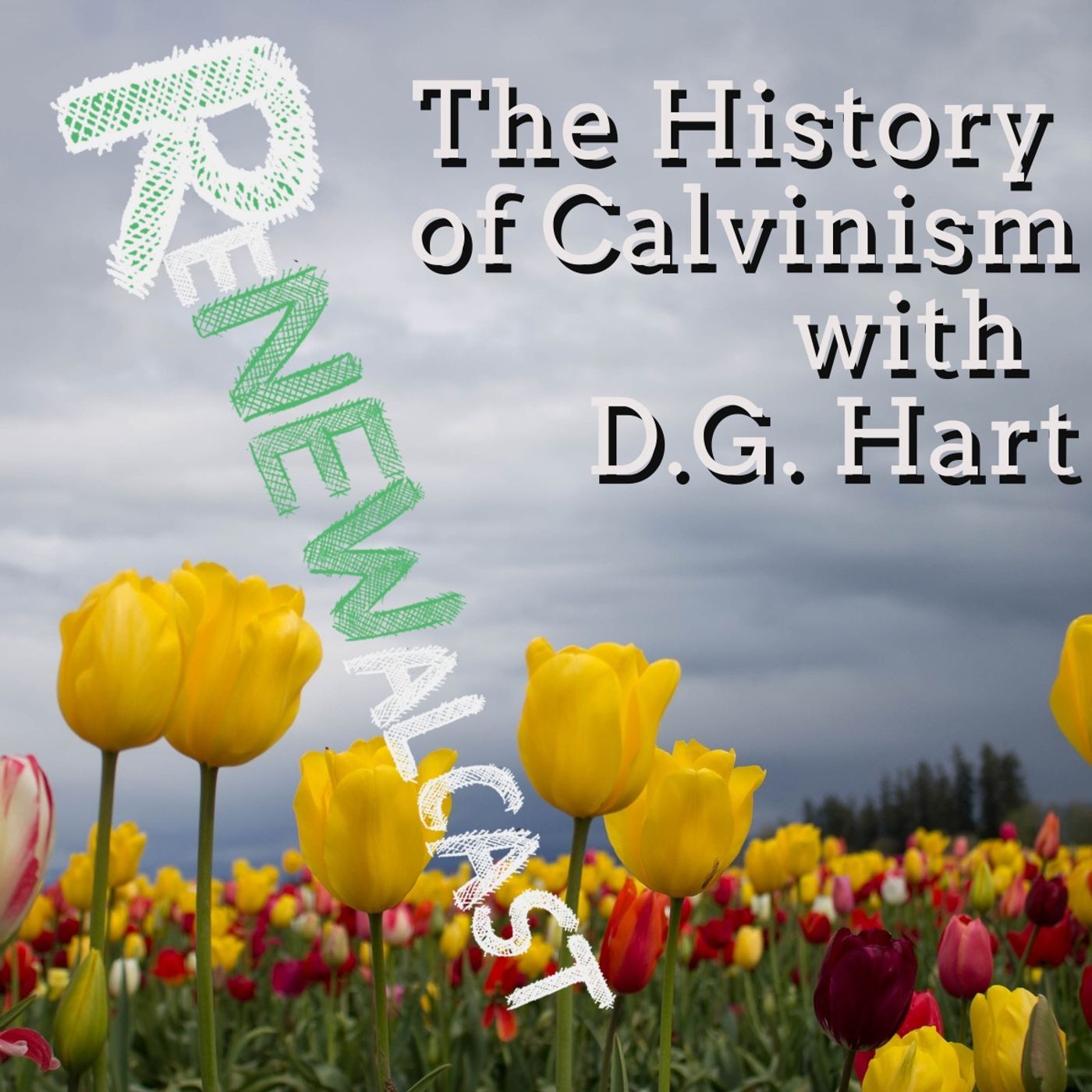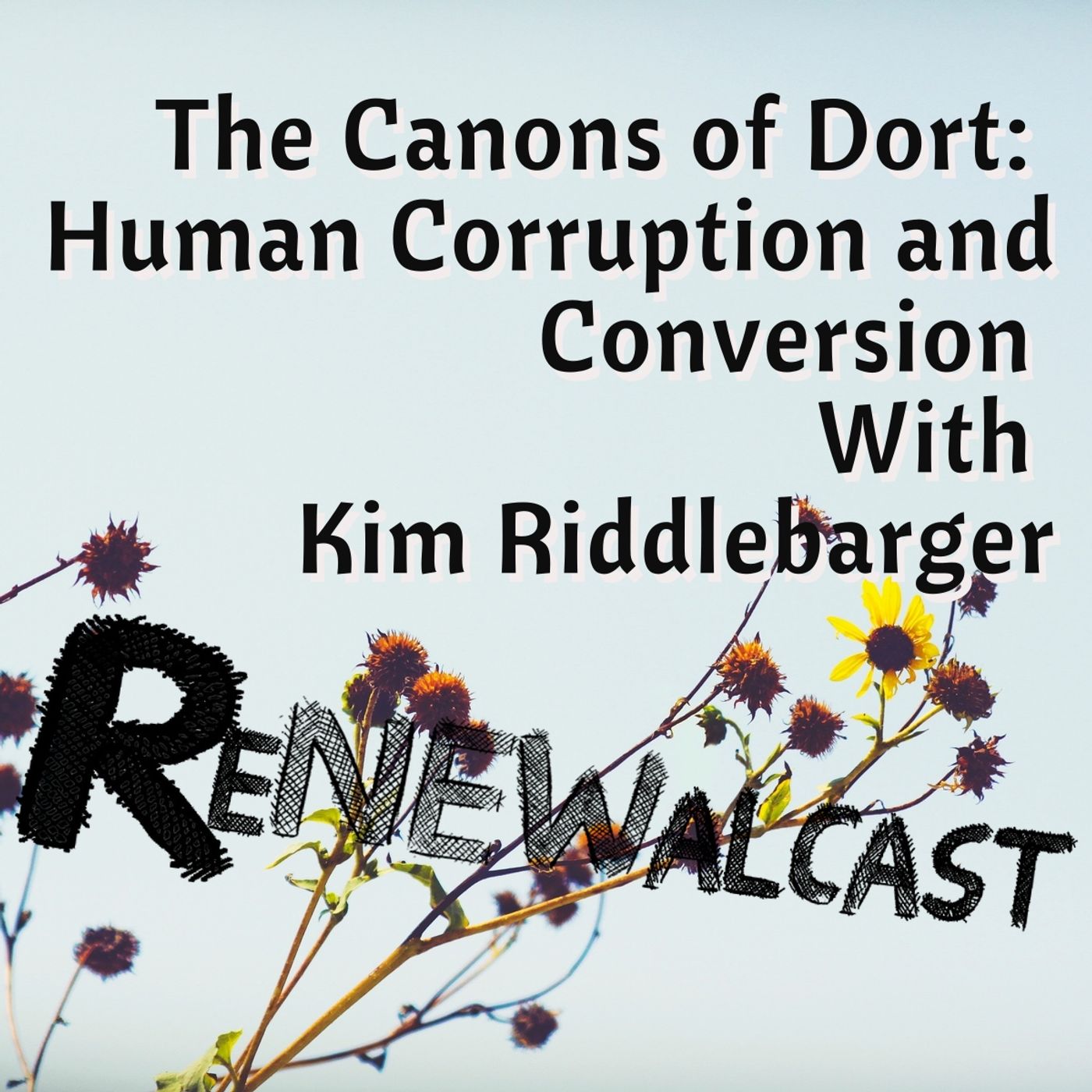Discover RenewalCast
RenewalCast

RenewalCast
Author: RenewalCast
Subscribed: 12Played: 267Subscribe
Share
© Copyright RenewalCast
Description
Everyone has things they believe in. Somethings we hold dear and will fight for and other things we are really rather flippant about because we think they do really matter. We live in a world where truth and belief are often confused, for instance, some suggest strongly that we are to value the beliefs of others. While I would admit that we ought to listen to others to understand their given belief and do this with respect for those whose beliefs may differ from our own. This shouldn't suggest that just because one holds a belief there is value (or what Stephen Colbert has called "truthiness") in that belief. The fact is many people have and still do belief things that are wrong and even dangerous. A radical example of this would be the belief system of Hitler and how his ideas where realized in Nazi Germany. Most people would agree that Hitler was wrong and the beliefs he had were wrong and dangerous. We often, however, do not place beliefs that some hold about God and the gospel on this level -- of actually being dangerous. God is Truth. What God has said about Himself and who we are is of radical importance -- not because these things are believed but because of who declared them to be True. Our mission at RenewalCast.com is to be one resource (among many greater ones) in helping to ground your belief on Truth that is revealed to us by God Himself in Scripture.
232 Episodes
Reverse
Show Notes are Ai Generated: About the Guest(s): Mike Abendroth is a seasoned pastor and theologian with a substantial background in Christian ministry. He has served as the pastor of Bethlehem Bible Church in Massachusetts for over 27 years, showcasing his long-term commitment to pastoral care and biblical teaching. Mike is also the host of "No Compromise Radio," which was initially broadcast on the radio and has since transitioned to podcast format. His reach as an evangelical speaker extends beyond his local church as he engages audiences through various media platforms. In addition to his church and radio responsibilities, Mike is a published author who has contributed to the theological community through his writings. Notably, he has experienced personal trials, such as leukemia treatment, and has used these challenges to shape his ministry and outreach further. Episode Summary: In this enlightening episode of Renewalcast, hosts Colt Robinson and Jay Wipf sit down with guest Mike Abendroth, Pastor and No Compromise Radio host, to delve into a critical aspect of Christian doctrine – justification. The episode kicks off with an announcement about an upcoming special Law Gospel week, punctuating the importance of understanding Christian liberty and its relation to law and theology. Central to their discussion is the concept of justification, a foundational doctrine within the Christian faith. Justification is meticulously unpacked to reveal its significance as God's irrevocable declaration of righteousness granted to believers through the work of Christ. Abendroth engages in a deep dive into the facets of justification, advocating for the clarity of distinction between it and sanctification, and discusses potential contemporary misunderstandings. The conversation touches upon historical confessions and how modern perspectives can either align with or diverge from these traditional stances. Key Takeaways:Justification is presented as a one-time, irrevocable act of God, declaring a believer righteous through the double imputation of sin to Christ and Christ's righteousness to the believer.The episode emphasizes the necessity of keeping the doctrines of justification and sanctification distinct to avoid theological confusion and assure believers of their standing before God.Contemporary challenges to the classic Protestant understanding of justification are identified, including the notion of 'final justification,' and the need for works as a requirement for final salvation.Quotes from historical theologians like John Owen are elucidated, offering insight into Reformation-era beliefs that conflict with the idea of double justification.The importance of confessions and historical theology as guides and 'gutters' to keep current teaching accurate and in line with orthodox belief is stressed.Notable Quotes:"Justification is a double imputation. It's our sins imputed to Christ and his righteousness imputed to us." - Mike Abendroth"Once God justifies someone, they can no longer become unjustified… Justification is the same for every single person that's justified, and it cannot be taken away." - Mike Abendroth"Faith alone claiming this privilege for itself… it is one thing for love and works to be required in the person who is justified, another in the act itself of justification." - Turretin, quoted by Mike Abendroth"We need not inquire how a man is justified after he is justified." - Benjamin Keach, quoted by Mike Abendroth"If you add this final justification by works, it renders that first one null and void. It didn't matter that you got it right initially." - Jay WipfResources:Renewalcast: Renewalcast WebsiteMike Abendroth's Podcast: No Compromise RadioListen to the full episode to gain a more comprehensive understanding of faith, justification, and the belief in Christ's role as the sanctifier. Stay tuned for more insightful discussions and episodes from Renewalcast.
About the Guest(s): Eldon Busenitz is a seasoned minister with a resolute dedication to pastoral ministry and preaching. Raised in a Christian home in South Central Kansas, Eldon's formative years on a farm instilled in him the values of hard work and self-discipline. His journey through pastoral ministry has spanned an impressive 57 years, with Eldon having served congregations across Nebraska, South Dakota, Michigan, and Texas. While originally envisioning a life in farming, Eldon discovered a strong conviction for pastoral work during his college years at Grace University, where he also met his wife. Eldon's approach to ministry is deeply rooted in his conviction that the Bible is the inerrant word of God. Episode Summary: In this episode of Renewal Cast, veteran pastor Eldon Busenitz joins Coalt Robinson and Jay Wipf to share a lifetime of wisdom accumulated through his 57 years of devoted service in pastoral ministry. Eldon recounts his early realization of his calling to ministry, the unexpected shift from his initial plans of farming, and his unwavering devotion to teaching and preaching the word of God. His influences, rooted in his upbringing and education, have shaped a career centered around faith, dedication, and the sovereign hand of God in all aspects of life and ministry. Eldon offers invaluable insights into the virtues of discipline, the importance of continuous learning, and the profound impact of consistently engaging with God's word for one's spiritual nourishment. With elder wisdom, he delves into the challenges and triumphs faced whilst steadfastly fulfilling his pastoral duties. Eldon's message is a beacon of hope and guidance, grounded in unwavering biblical truth and a clear vision of the church's unique mission in the world. Key Takeaways:Eldon Busenitz's lifetime of experience in pastoral ministry highlights the importance of hard work, dedication, and a commitment to learning.Eldon emphasizes the importance of expository preaching and teaching the entire counsel of God's word as foundational to church health and growth.The necessity of training and mentoring future generations in ministry is a key focus for sustaining church leadership and continuity.Sound doctrine and a thorough doctrinal statement are paramount for the unity and stability of the church.Eldon underscores the significance of the church staying true to its mission by focusing on the heart-changing message of the Gospel amidst societal pressures.Notable Quotes:"I consider it a high, awesome calling and a privilege to be involved in pastoral ministry.""The Bible is the God-breathed inerrant word of God… I've never struggled with that conviction.""Self discipline and hard work are especially indispensable qualities in ministry.""True unity is based on truth. It's not at the expense of truth.""Success is based on standing faithfully on what God has called us to do."Resources: No specific resources, social media handles, or URLs were referenced in the transcript provided. Tune in to the full episode to draw from Eldon Busenitz's rich well of knowledge and experience and to grasp the nurturing essence of his pastoral journey. And don't miss out on future episodes of RenewalCast for more enlightening discussions that challenge, inspire, and foster spiritual growth.
About the Guest(s): Jim Newheiser is an experienced figure in the field of Christian counseling, currently serving as the director of the Christian Counseling program at Reformed Theological Seminary in Charlotte, North Carolina. This program is grounded in biblical counseling principles. With a history of engagement in the field since the mid-1990s, Newheiser has also played a pivotal role in the Institute for Biblical Counseling and Discipleship (IBCD), serving as its executive director for 17 years. Additionally, he contributes his expertise as an ACBC fellow and as a member of the Biblical Counseling Coalition. His personal life includes over four decades of marriage and raising three adult sons. Episode Summary: In this episode of Renewal Cast, Coalt Robinson invites counselor and educator Jim Newheiser to delve into the intricate process of personal change and the nuances of parenting in a Christian context. The discussion opens with an exploration of why individuals often struggle with transformation despite recognizing the need for it. Jim shares his insights, drawing from his extensive experience in biblical counseling and pastoral ministry. The conversation moves towards the critical role that the gospel plays in facilitating authentic change, highlighting the need for a balance between understanding divine grace and exercising personal responsibility in sanctification. The practical issues in parenting are addressed, noting that the application of scriptural principles varies significantly depending on the child's stage of faith. Interwoven with Newheiser's theological stance are the challenges and humbling experiences that come with striving to guide children towards a Christ-centered life. Key Takeaways:Transformation often involves a long-term process rather than instantaneous change, and individuals should align their expectations with the principles of progressive sanctification.A secure standing with God through Christ is the foundation from which genuine change and pursuit of holiness emanate, and this assurance is essential for combating doubts and fostering spiritual growth.Gratitude for God’s grace can significantly motivate obedience, but this is just one aspect of multifaceted motivations that also include discipline and a recognition of God’s love.Parenting is an area where law and gospel both play crucial roles, and biblical principles must be applied with awareness of a child's spiritual condition and individual needs.It is important for parents to recognize their limitations in changing their children's hearts and to understand that ultimately, it is God who regenerates and sanctifies.Notable Quotes:"The Bible teaches Philippians 1:6, He who began a good work in you will continue to perfect it until the day of Christ Jesus.""If salvation is God's work, then it will progress beyond conversion, and you began the good work, will continue to perfect it. No one will snatch you out of the father's hands.""The gospel empowers obedience rather than discouraging it.""We will not save our children through being perfect parents. Even if there was a law of parenting, we could not keep it.""Being a believer in a fallen world […] it gives me compassion for people who struggle in different ways, including in this way [parenting]."Resources:Institute for Biblical Counseling and Discipleship (IBCD): IBCD WebsiteACBC (Association of Certified Biblical Counselors): ACBC WebsiteBiblical Counseling Coalition: BCC WebsiteDive into the full episode to gain a deeper understanding of the transformative power of the gospel and to hear Jim Newheiser's insightful perspectives on change and parenting within the Christian faith. Stay tuned for more thought-provoking episodes from Renewal Cast.
Buy coffee and support the ministry of E.D. Burns! About the Guest(s): Dr. E.D. Burns is a seasoned missionary with more than two decades of experience since 2002, residing and working in Southeast Asia. He holds a teaching position at Asia Biblical Theological Seminary, spread across various satellite sites in Southeast Asia. His work focuses primarily on training pastors and missionaries, translation, and writing theological materials. As the Director of Frontier Dispatch, Dr. Burns engages in networking within ministry circles, emphasizing simplicity and practicality in his educational materials. His prolific writing includes a new book, "Seeds and Stars," which discusses the integration of Christian spirituality with missions and serving the gospel. Episode Summary: In this inspiring episode of Renewal cast, we welcome back Dr. E.D. Burns to delve into his intriguing work as a missionary and author. This discussion navigates the complexities of missions, evangelism, and the drive behind Dr. Burns' latest publication, "Seeds and Stars." Dr. Burns shares his profound insights on the integration of the five solas of the Reformation into modern missionary work and Christian living. By stressing the foundational truths of grace, faith, scripture, Christ, and the glory of God, he offers powerful arguments for deeper theological understanding as a means of encouragement for believers in their spiritual journey and Great Commission efforts. His approach to spirituality emphasizes resting in Christ while actively contributing to God's work across the world. Key Takeaways:Dr. E.D. Burns emphasizes the five solas as the framework for encouraging mission-focused Christian spirituality.He critiques the influence of mystic and monastic traditions on contemporary Christian spirituality, advocating for a return to soli Deo gloria as the root of all encouragement.The discussion underscores the importance of assurance in faith, contrasting it with the ongoing pursuit of union with God found in Catholic mysticism.Dr. Burns expounds on the dangers of blending law and gospel, highlighting the critical distinction between the two for proper theological understanding.The episode also explores the controversial concept of "final justification" and the necessity of maintaining the purity of justification by faith alone.Notable Quotes:"The glory of God is the chief end of man, and the chief end of all history. You got to get that right first.""Justification is one package deal. It's from justification to glorification you're in.""Any good works that we have to point to, if we do in this life, all emerge out of the power of grace working in us as we walk by faith alone.""We labor in the middle. And it's all about promise giver and the promise keeper. It's all about his work.""We rest in our service as we labor on."Resources:The new book "Seeds and Stars" by Dr. E.D. Burns.Previous work by Dr. Burns including his book "The Transcultural Gospel."Frontier Dispatch, the ministry led by Dr. Burns.To truly grasp the depth and richness of the conversation and be uplifted by the powerful guidance offered by Dr. Burns, we encourage you to listen to the full episode. Stay tuned for more enlightening content from Renewal cast that promises to rejuvenate your spiritual walk and service.
About the Guest(s):Michael Beck is an insightful pastor and venerable thinker with a deep interest in Meredith Klein. Originally from South Africa, Beck moved to New Zealand in 2005 to plant Gracenet Community Church and has been serving as its pastor since. With an academic background that includes a PhD focused on the work of Meredith Klein, Michael Beck has contributed significantly to the understanding and accessibility of biblical theology within the Reformed tradition. Besides his pastoral work, he also teaches Old Testament and Hebrew at Grace Theological College and hosts the podcast "Two-Age Sojourner," which centers on biblical and systematic theology with a clinionian perspective.Episode Summary:In this episode of Renewal Cast, Coalt Robinson engages in a compelling conversation with Michael Beck, pastor and noted thinker who has extensively studied Meredith Klein, a pivotal figure in biblical and theological scholarship. Beck shares his insightful views on why Klein's work remains highly relevant for understanding Christ's relationship with culture and our roles within it.The discussion opens with Beck recounting his church-planting experiences in New Zealand and how it led him to Klein's theology. He emphasizes that Klein's perspective on the sacred-secular divide and covenant theology has profound implications for church missions and individual Christians in a secular society. The academic rigor and theological depth of Beck's PhD dissertation-turned-book, "Covenant Lord and Cultic Boundary," serve as a backdrop for the entire conversation.Key Takeaways:Michael Beck's experience in church planting in New Zealand confronted him with secularism, leading him to Meredith Klein's work on covenant theology and Christ-culture relationships.Beck's book "Covenant Lord and Cultic Boundary" critically examines the church's role in society, inspired by Klein's thoughts on the sacred-secular divide.Klein's legacy is multifaceted, ranging from Old Testament scholarship to his significant development of Gerhardus Vos's biblical theology.Essential to Beck's thesis is the interplay between active obedience in justification and its impact on the church's cultural engagement.The Transformationalism movement in church planting is critiqued for potentially overburdening churches with cultural ambitions at the expense of gospel-centric mission.Notable Quotes:"The question before us was just, okay, well, what do we do with the culture? How do you plan a church? How are you supposed to live in this culture faithfully?" - Michael Beck"What Klein shows is that [covenant theology] is going to matter." - Michael Beck"Adam failed, Israel failed. I mean, I hate to break it to you, but we're not going to make it. We need Jesus." - Michael Beck"The church has something to say, and there are all these temptations to kind of move in different directions." - Michael Beck"I just want to come to church and hear the gospel and just be fed by word and sacrament." - Michael BeckResources:Michael Beck's bookMeredith Klein's academic contributions.Church planting networks like Acts 29.Books by Michael Horton: "Where in the World is the Church?", "The Gospel Commission", and "Ordinary".Michael Beck's own podcast "Two-Age Sojourner".Be sure to tune in to the full episode of Renewal Cast to engage with the rich theological insights Michael Beck offers based on his study of Meredith Klein. As you explore the transformative power of God's word, continue to renew your mind with us and discover a clearer vision of Jesus. Stay with us for more episodes filled with profound discussions on biblical and theological topics.
You may need a snickers, but God doesn’t. Listen and see why that is good news for us and helps us trust God.About the Guest(s):Samuel Renihan is the guest spotlighted in this episode. With a deep commitment to theology, Sam serves as one of the pastors at Trinity Reformed Baptist Church in La Mirada, California. He possesses an academic background with a focus on Spanish language and literature for his undergrad followed by an MDiv at Westminster in Escondido, capped with a PhD from the Free University of Amsterdam. He is dedicated to exploring Baptist confessional theology and history, offering rich insights into the doctrines that shape faith and practice. Sam is also a family man, married to Kim with a son named Owen, and he has an intriguing musical taste influenced by ancient folk stories from Finland.Episode Summary:In this enriching episode of Renewalcast, Coalt Robinson sits down with Pastor Samuel Renihan to delve into the nuanced and complex doctrine of divine impassibility. The discussion aims to unravel the intricacies of this crucial theological concept and its implications for understanding God's unchangeable nature. The conversation opens doors to a greater comprehension of how divine attributes provide comfort and assurance within the Christian faith.Renihan articulates the essence of divine impassibility, emphasizing its role in characterizing God as unchanged and unchangeable by external or internal forces, particularly in terms of emotions. This leads into an exploration of the impact of such a doctrine on our interpretation of scripture and the nature of God's commitments, such as the promise of unfailing love and mercy. Furthermore, Renihan highlights the importance of balancing the understanding of God's love with his justice, stressing the immutable and perfect nature of both attributes.Key Takeaways:Divine impassibility asserts that God is not subject to change, either externally or internally, especially concerning emotions.Passages that seem to suggest God experiences emotional change are interpreted through metaphoric language contextualized by other scriptures affirming God's immutable nature.Impassibility does not negate God's affective attributes but rather nuances them as perfections integral to his essence – e.g., God as love itself rather than possessing the quality of love.The doctrine provides reassurance of the steadfastness of God's promises, both in the unchanging nature of his love for the redeemed and the certainty of his justice towards the wicked.The conversation around impassibility touches on practical aspects of faith, from the assurance of salvation to the understanding of God's discipline and just wrath.Notable Quotes:"Impassibility is that God's not passable. He can't be changed by outside forces, external forces, nor does he act upon himself to change himself in any way.""His love is impassable, and his love will always be perfect and always be marvelous and always at the full for his people, which assures us in so many ways.""…the gospel is not about changing God's mind. The gospel is about changing you.""God's justice can do nothing else but approve of a righteous object. That same justice to us is mercy and kindness, whereas to the wicked it is wrath and anger.""Even the afflictions that God permits in our lives, he does so with a loving purpose of sanctifying us…"Resources:James Dolzal's book, "All That Is in God"Sam Renihan's own book, "God Without Passions: A Reader"We invite you to listen to the full episode for a more thorough understanding and appreciation of the doctrine of divine impassibility as Samuel Renihan unpacks its profound implications for the Christian faith. Stay tuned to Renewalcast for more thoughtful and enlightening discussions on matters of theology and practice.
About the Guest(s):Simonetta Carr is an Italian-born author and educator with a rich background in history, writing, and working with young people. She possesses a lifelong passion for history, one that was nurtured by the rich historical culture of Italy. For many years, Simonetta traveled internationally with her American husband, an English teacher, and embraced the homeschooling journey with their eight children. Homeschooling provided a platform for Simonetta to merge education, historical exploration, and writing, eventually leading her to author numerous children's books and a comprehensive church history book. Renowned for the "Christian Biographies for Young Readers" series, she has penned over twenty titles, bringing church history to life for younger audiences.Episode Summary:Dive into the intellectually enriching realm of church history with the latest episode of Renewalcast, featuring the esteemed author and historian, Simonetta Carr. Known for her captivating "Christian Biographies for Young Readers," Carr's works are a beacon for education, thoughtful reflection, and theological discovery, painting a vivid historical landscape for both young minds and adults alike.This episode journeys through Carr's unique personal history, her international experiences, and her profound discovery of church history's relevance and resonance. We explore the genesis of her acclaimed book series, her meticulous research process, and her unwavering commitment to presenting church history in a form that young readers can not only comprehend but deeply connect with. Witness a behind-the-scenes look at Carr's collaborations with experts, the challenges of distilling complex ideas into engaging narratives, and her insights on why church history remains crucially important in modern times.Key Takeaways:Simonetta Carr shares her background in Italy and journey into writing children's books on church history.Carr emphasizes the importance of teaching theology alongside historical figures to help children understand the development of Christian beliefs.The process of writing these books involves extensive research, consulting experts, and the creative challenge of simplifying theological concepts for young readers.Carr's passion extends to encouraging young Christians through her works, highlighting God's preservation of the church throughout history.The "Kids Talk Church History" podcast, supported by the Alliance of Confessing Evangelicals, showcases the active participation and perspectives of young believers today.Notable Quotes:"I had this idea […] to include all this in my curriculum with my kids. And I was interested not only in learning about great people in church history but about how the theology developed.""I try to condense their main teaching in one or two paragraphs. […] It's the hardest part, to try to really condense it. But it's also, for me, it's the most fun because it's a challenge.""So many young people joining this movement and the parents saying, what happened to them? It sounds like they're talking and then you read letters. Like, I think it was Bollinger. I think he was writing his son and saying, why are you spending so much money in college and we don't have money to buy another pair of shoes.""I am generally encouraged, just generally speaking. I think it's just from studying church history that kind of made me really believe that Christ is keeping his church.""It encourages you, especially when people say, oh, everybody hates Christians now, what's going to happen to us? Just look back 2000 years, we're still here."Resources:"Christian Biographies for Young Readers" series by Simonetta Carr."Kids Talk Church History" podcast by the Alliance of Confessing Evangelicals.In a world that often overlooks the pivotal role of church history in shaping our faith, Simonetta Carr's works serve as a compelling invitation to discover its transformative power. Tune into the full episode of Renewalcast to glean rich insights from this evocative discussion with Simonetta Carr and keep an ear out for future episodes that promise to renew your mind with the life-giving wisdom of spiritual heritage.
About the Guest(s):D.G. Hart is an esteemed history professor at Hillsdale College. Hart's remarkable career includes teaching positions at Westminster Seminary in Philadelphia, California, and an early tenure at Wheaton College after completing graduate school. Hart is a published author with works that delve into a variety of subjects, with a notable book on J. Gresham Machen, originally his dissertation at Johns Hopkins, which has stayed in print since its first publication in 1994.Episode Summary:In this informative edition of Renewalcast, host Jay Wipf welcomes Dr. D.G. Hart to discuss the legacy of Jay Gresham Machen, a significant figure in American church history. As we approach the centennial of Machen's seminal work "Christianity and Liberalism," Hart outlines the profound impact of Machen's writings and thoughts on contemporary Christendom.Hart paints a picture of Machen as a well-educated and influential thinker from a prestigious Baltimore family, who traversed the academic and ecclesiastical worlds with vigor and conviction. The episode offers discerning insights into Machen's life as a scholar, his stance on hot-button issues such as church controversies and secular government mandates, and his unwavering defense of orthodox Protestant beliefs against the tide of liberalism in the early 20th century. With a narrative rich in anecdotes and scholarly commentary, Hart provides a detailed synopsis of "Christianity and Liberalism," underscoring the timelessness of Machen's defense of doctrinal veracity and the imperative of upholding the gospel's centrality in Christian life.Key Takeaways:J. Gresham Machen was an esteemed theologian and church statesman known for his rigorous defense of orthodox Christianity."Christianity and Liberalism," celebrating its 100th anniversary, remains a significant work, critiquing the theological missteps of liberal Protestantism.Machen's personal life intersected with historical events, influencing his perspectives on theological and societal issues such as Sabbath observance and secular policies.DG Hart reiterates Machen's argument that Christianity is fundamentally a doctrinal religion and emphasizes the continued relevance of "Christianity and Liberalism."The podcast explores the parallel between theological liberalism in Machen's day and modern progressivism, revealing Machen's enduring resonance in today's theological discourse.Notable Quotes:"It speaks to Machen's ability as a writer and thinker to be able to express himself in ways that are still useful to people three or four generations removed.""There's always controversy going on among God's people.""There will be no Christianity without the cross of Christ, without the death of Christ for sinners and their sins and overcoming death in the resurrection.""The Bible from cover to cover is a book of controversy.""It's such a defense of the gospel of Jesus Christ. It is truly a great book in that regard."Resources:No explicit resources, articles, books, or social media handles were mentioned during the conversation for listing in this section.Experience the full depth of DG Hart's explication on the life and influence of J. Gresham Machen by listening to this episode of Renewalcast. Discover how Machen's theological rigor continues to resonate through the decades, shaping our understanding of the gospel and our engagement with the enduring questions of faith and practice. Stay tuned for more insightful episodes that explore the profound narratives of church history and doctrine.
About the Guest(s):Brandon Mills is a family man and a devout Christian with deep roots in the Reformed Baptist tradition. Married to his wife Jeanette for nearly 15 years, they have four children, with a fifth on the way. Brandon is on the verge of completing his Master of Divinity (MDiv) from the Southwestern Baptist Theological Seminary. Known for being an introvert and a passionate reader, he resides in the northern edge of the Texas Hill Country. Brandon prides himself on living a Christ-centered life and is devoted to spreading the Gospel. He and Jeanette are the creators of Little Pilgrims Theology, a digital theology curriculum for children.Episode Summary:In this enlightening episode of Renewal Cast, host Coalt Robinson engages with Brandon Mills to delve into the world of "Little Pilgrims Theology," a fascinating resource that moves beyond Sunday School basics. The conversation orbits around spirituality, education, and the nurturing of young minds in the light of the Gospel. From the outset, Brandon warmly shares his personal journey, including his family life, his imminent seminary graduation, and his love for the great outdoors aligning with his contemplative nature. With a particular focus on Little Pilgrims Theology, Brandon outlines the creation and purpose of his digital theology curriculum, revealing the content's depth and his mission for the platform. The lessons, based around a reformed Baptist perspective, range across all major theological disciplines and cater to varying age groups, all fundamentally anchored in Scripture and Christian teaching.Key Takeaways:Little Pilgrims Theology: A comprehensive digital curriculum that teaches children about the major disciples of theology in a captivating and accessible manner.Theological Foundation: Stands firmly within the Reformed Baptist tradition, specifically aligning with the 1689 London Baptist Confession.Accountability and Integrity: Emphasizes the importance of being accountable to both their local church community and the broader audience for theological accuracy.Multi-Generational Usability: While primarily designed for children, the catechism resources have proven beneficial and instructive even for adults, including seminary students.Continuous Growth: The project has aspirations for geographical expansion, language translations, and further development of the curriculum to offer a more robust educational tool.Notable Quotes:"Most importantly, above all these things, as you guys know, my identity is in Christ.""Is to hold to a whole list of C's. So we're creedal, we're confessional, we're covenantal, we're calvinistic and we're baptist, so we're congregational.""The secret is, know Jeanette is really such a gift, and she's going to probably be annoyed that I'm telling you this, but she has an incredible ability for discernment…""The beauty of that, at least firsthand, being the one doing it with another group of facilitators and teachers, was, it's low prep.""The ten major disciplines of theology. So you think in terms of bibliology, theology proper, christology, pneumatology, hermarchology, go on down the line."Resources:Little Pilgrims Theology Website: littlepilgrimstheology.comPilgrims Music: pilgrimsmusic.orgSouthwestern Baptist Theological Seminary: swbts.eduBrandon's Upcoming MDiv Completion at Southwestern Baptist Theological SeminaryWe warmly invite you to listen to the full episode to gain a deeper understanding of the spiritual and educational treasures within 'Little Pilgrims Theology'. Stay tuned for more inspiring conversations that shed light on the facets of faith, family, and fruitfulness in the Christian journey.
About the Guest(s):Amy Gannett is a theologian, author, and church planter who, alongside her husband, founded Trinity Church in Greenville, North Carolina. With a background that includes studying at Moody Bible Institute and Gordon-Conwell Theological Seminary, Gannett is passionate about teaching the Word of God and equipping individuals with theological education. She is the creator of Tiny Theologians, a line of discipleship tools for children, and runs the Bible Study Schoolhouse, offering accessible Bible study resources. Her book, "Fix Your Eyes," bridges the gap between theology and worship, aiming to make systematic theology approachable and applicable to daily life.Episode Summary:In this thought-provoking episode of Renewal Cast, host Colt Robinson has an enlightening conversation with guest Amy Gannett, shining a light on the transformative power of biblical and theological study in daily worship. Gannett, an accomplished author, and educator, shares her journey from seminary student to church planter and the practical tools she has developed to foster spiritual growth across all ages.Amy Gannett delves into her experiences in church planting and the challenges of integrating academic theology into a vibrant, active faith. She discusses the origins of her book "Fix Your Eyes," highlighting the importance of understanding doctrines like the Union with Christ and their real-world implications on worship. Amy also illuminates her other ventures, Tiny Theologians and the Bible Study Schoolhouse, which provide engaging, theologically rich resources for children and adults alike.Key Takeaways:Amy Gannett discusses the process of church planting and her journey from reluctance to embracing its missional value and the unique network of church planters she belongs to.The pivotal role of the ecumenical creeds and protestant confessions are discussed, emphasizing how they help Christians distinguish between the essentials and non-essentials of faith.Gannett explains the doctrine of the Union with Christ and its ability to impact daily worship, highlighting the book's aim to connect deep theological truths with practical daily life.Tiny Theologians and the Bible Study Schoolhouse are Gannett's platforms that provide discipleship resources for kids and Bible study materials aimed at nurturing spiritual growth in a manageable time frame.Amy shares her personal life, speaking about the joy found in balancing ministry work with family time and the discipleship of her daughters.Notable Quotes:"Church plants are really sexy right now… But for [my husband], he's sort of just in it for the long haul.""I wanted to take time and study church history… it was so life-giving to me to have that closed hand on the essentials and an open hand on the nonessentials.""We are actually united to the person of Jesus Christ in salvation. And because we are united to him, everything that he gained is ours by means of union.""The doctrine of union with Christ breaks [salvation] out of its sort of conversion and glorification landmarks… it makes it come into full reality.""I'm accountable to God for the discipleship that happens in my home in the same way that I'm accountable for the girls that he has entrusted to me."Resources:Amy Gannett's book: "Fix Your Eyes"Discipleship resources for children: Tiny Theologians (Tiny Theologians website)Bible study materials for adults: Bible Study SchoolhouseWe invite you to listen to the full episode to gain deeper insights into how theology can be lived out through worship and the rich resources available for both children and adults to grow in their faith. Stay tuned for more engaging conversations from Renewal Cast.
About the Guest(s): Terry Johnson is the esteemed minister of the Independent Presbyterian Church located in Savannah, Georgia. Bringing with him over three decades of pastoral experience, Terry has devoted 37 years as the senior minister at his church. With a background rooted in Southern California, he pursued his education at the University of Southern California before honing his theological insights at Trinity Bristol, where he was under the tutelage of renowned figures such as J.I. Packer and J.A. Motyer. Furthering his education at Gordon Conwell and Erskine Seminary, Terry has solidified his position as a theological authority, particularly known for his work with Dr. Hughes Oliphant Old during his masters of Ministry and Doctor of Ministry studies. His contributions to the broader religious community extend into authorship, where he has a multitude of works to his name. Episode Summary: In this enlightening episode of Renewalcast, hosts Cole Robinson and Jay Wipf navigate through the intricacies of conservative and liberal ideologies within the Christian church. With the voice of theological wisdom, Terry Johnson steers the discourse towards understanding the impact of liberal drift in denominations and how it shapes the contemporary religious landscape. The episode peels back the layers of the fundamentalist controversy of the 1920s, where battles for denominational control underscored a pivotal shift in church dynamics. Terry Johnson brings to light the complexities involved in the tension between affirming orthodox Christian principles, such as the inerrancy of scripture, and adopting a more inclusive theology that broadened into liberalism. Using the Northern Presbyterian Church as a case study, he examines how moderate evangelicals' prioritization of church mission and unity over strict orthodoxy ultimately led to a seismic change in the foundational beliefs of the denomination. Delving into historical anecdotes and character studies of influential figures like Charles Erdman and Robert Spear, the podcast paints a detailed picture of emotional and intellectual clashes that have lasting repercussions. Key Takeaways:The fundamentalist controversy refers to the 1920s struggle over the control of mainline denominations, with a significant focus on the authority of scripture and foundational Christian doctrines.Moderate evangelicals compromised on strict orthodoxy for the sake of church mission and unity, resulting in the gradual liberal drift of denominations.A shift in focus from doctrinal integrity to adherence to the Book of Church Order marked a pivotal turn where bureaucracy trumped theology.The episode highlights the irony of liberal tolerance, which is often one-directional and leads to the marginalization of orthodox viewpoints.The podcast underscores the importance of pastors staying firm in their convictions and preaching the whole counsel of God systematically to combat liberal drift.Notable Quotes:"You pull the foundation out from under the biblical account of Jesus' life and ministry, in the end, you're going to lose Jesus too." – Terry Johnson"Toleration goes one way…Toleration until we're the majority, and then we kick out all those who don't agree with us." – Terry Johnson"The way to build the church is to preach the gospel…the watered down version is not. It has no power in it, so it's self-defeating." – Terry Johnson"You cannot reorder reality. You fight against reality, reality always wins." – Terry Johnson"Speak the truth in love. And where we get off is where we have truth and no love, or we have love and no truth." – Terry JohnsonResources: No specific websites, social media handles, or URLs were directly mentioned in the transcript. For those seeking further engagement and reflection on these critical topics, be sure to listen to the full episode. Join us on Renewalcast as we continue to explore transformative biblical and theological subjects that bring clarity and renewal to our understanding of faith. Stay tuned for more discussions that promise to enrich and deepen your perspectives.
About the Guest(s):Michael Brown is an American pastor affiliated with the United Reformed Churches in North America and a missionary based in Milan, Italy. He pastors Chiesa Reformata Filadelfia, where he focuses on expository preaching, administering sacraments, and tending to the congregation. Brown is actively involved in evangelism, outreach, discipleship, and aims to establish the first Reformed and Presbyterian denomination in Italy. Fluent in Italian, he and his wife, along with their 17-year-old son, continue to translate and publish critical theological works to foster understanding and address prevalent societal issues from a biblical perspective.Episode Summary:In this latest edition of Renewalcast, hosts Cole Robinson and Jay Wipf engage in a profound discussion with Pastor Michael Brown, tackling the challenges and nuances of living out Christian faith amid struggles with sexual sin. With Brown's missionary insights from Italy peppering the conversation, listeners can expect an episode rich in theological depth and pastoral compassion.The dialogue delves into the new Reformation catechism on human sexuality, particularly focusing on part four - restoration. The nuanced narrative explores themes such as confession, repentance, mortification of sin, and the transformative power of Christ's obedience. As they unravel the complexities of sin and the grace of redemption, Brown emphasizes the essence of identity in Christ as a pivotal anchor for Christians. The summary encapsulates not only the theological foundation but also the necessity for community and church support, offering a comprehensive guide for anyone grappling with sexual sin while seeking to walk in purity and newness of life.Key Takeaways:Sexual sin, while grave, is a battle like any other sin and doesn't define a Christian's identity, which is securely found in Christ.Confession, repentance, and a godly sorrow that leads back to the Gospel are crucial steps for those struggling with any form of sexual sin.Sanctification is a lifelong process where the Holy Spirit gradually makes believers more like Christ through means such as the word, sacraments, and Christian fellowship.Understanding personal identity in Christ is liberating and pivotal for the Christian life, influencing family, marriage, and community engagements.The church is characterized as a hospital for sinners, where believers must support, not shun, each other in struggles with sin, including sexual immorality.Notable Quotes:"The person who comes in, into the church who is homosexual…we cannot look at that person and say, ooh, gay lesbo…We have to have a posture of humility and compassion towards one another…""Our growth in sanctification really leads us to believe the Gospel more…as one Puritan put it, the pathway to holiness is paved with a good sense of our own wretchedness.""Everyone has a battle against sin, whether we're talking about lust…or we're talking about anger…everyone has a battle to fight because we're not glorified yet."Resources:No specific resources or URLs were mentioned in the transcript.Engage with this enriching conversation fully by listening to the episode and gain clarity and encouragement on your spiritual journey. And, if this episode has piqued your interest, stay tuned to Renewalcast for more episodes that shine a light on scripture's enduring wisdom and its application to modern-day challenges.
About The Guest(s): Jonathan Cruse is a pastor in Kalamazoo, Michigan, and has been serving at an orthodox Presbyterian church for over six years. He is married to Carrie Ann and they have three children. Jonathan is also the author of the book "The Christian's True Identity," which explores what it means to be in Christ.Summary: In this episode of Renewalcast, Coalt Robinson and Jay Wipf continue their series on the new Reformation catechism on human sexuality. They are joined by Jonathan Cruse, a pastor in Kalamazoo, Michigan, to discuss the topic of redemption in relation to human sexuality. They emphasize the importance of understanding the doctrine of redemption and how it shapes our understanding of salvation and the Christian life. They address the misconception that sexual sin is not a result of the fall and explain why it is crucial to have a proper understanding of redemption in order to grasp the depths of God's love and the call to obedience. They also discuss the compatibility of sexual sin with the gospel and the need for a correct understanding of Christian liberty. The episode concludes with a discussion on the identity of Christians and the process of sanctification.Key Takeaways:Understanding redemption is essential for grasping the depths of God's love and the call to obedience.Sexual sin is incompatible with the gospel and the new identity we have in Christ.Christians should not identify with their sin but with their union with Christ.Sanctification is a lifelong process that involves the work of the Holy Spirit in conforming us to the image of Christ.The New Testament contains numerous references to being "in Christ," highlighting the importance of our union with Him.Quotes:"We need to understand what salvation is really about. If we don't understand redemption and what has happened to me in redemption, I'm not going to realize the depths of the love that God has for me." - Jonathan Cruse"The gospel is for all of us, not just for them. This is for us to walk through with our families." - Coalt Robinson"Christ has broken the dominion of sexual sin over me. I have a renewed desire to reckon myself dead to my old way of sexual immorality." - Jonathan Cruse"Christ is faithful to me, and I've been called to be faithful to Him. Can I invite something that's incompatible with His call in my life into our relationship?" - Jonathan Cruse"Sanctification is a lifelong process. The Holy Spirit draws us to see Jesus better, to love Him more, and to follow after Him more." - Jonathan Cruse
About The Guest(s): Wes Bredenhof is a pastor at the Free Reform Church of Launceston in Tasmania, Australia. Originally from Canada, he has been serving in ministry for over 20 years and has experience working with indigenous communities. Wes has also been involved in radio programs and has contributed to the development of the New Reformation Catechism.Summary: Wes Bredenhof joins the podcast to discuss the impact of the fall on human sexuality. He explains the concept of pervasive depravity, which means that sin affects every aspect of human existence, including our sexuality. Wes emphasizes that our desires are not the basis of our identity, but rather our identity is found in being created in the image of God and in our union with Christ. He also addresses the issue of unchosen desires and the importance of aligning our desires with the truth of God's Word. Wes highlights the danger of identifying as a gay Christian and emphasizes the need to find our identity in Christ alone. He concludes by reminding listeners of the hope found in the forgiveness and sanctification offered through Jesus Christ.Key Takeaways:Sin is pervasive and affects every aspect of human existence, including our sexuality.Our identity is not based on our desires, but on being created in the image of God and in our union with Christ.Identifying as a gay Christian is contrary to Scripture, as sin and Christ cannot be mixed.God does not permit sinful desires to go unpunished, and there is a just judgment awaiting those who do not repent.The hope for salvation and sanctification is found in Jesus Christ, who offers forgiveness and the presence of the Holy Spirit to transform our lives.Quotes:"We have to follow something that has solid ground under it, which is, of course, the word of God.""Our identity isn't in our feelings. Our identity is in Christ.""Regardless of your feelings, you have to go to God's word.""Our identity is in Christ, and we have to keep looking to him.""We have to be that countercultural voice in our day.""There is hope for salvation in Jesus Christ.""For every true Christian, there is change taking place, and we need to be constantly reminded of that and encouraged by that."
About The Guest(s):David VanDrunen is a professor of systematic theology and Christian ethics at Westminster Seminary, California. He has written extensively on Christianity and culture and is a minister in the Orthodox Presbyterian Church.Summary: David VanDrunen discusses the importance of understanding creation when discussing human sexuality. He explains that our nature as sexual beings is part of who we are and that the fall has corrupted our sexual desires but not our basic human nature. He emphasizes the need to root discussions of sexuality in issues of creation and the natural order. VanDrunen also addresses the distinction between biological sex and gender, highlighting the importance of recognizing that gender is a choice while biological sex is a natural characteristic. He explains that gender identity that goes against biological sex is unnatural to the creation order. The conversation then turns to the use of language in the discussion of sexuality and the importance of being careful not to co-opt language that supports ideas contrary to biblical teachings. VanDrunen also explores the concept of the image of God and how it relates to discussions of sexuality. He emphasizes that our identity as image bearers of God is defined by God and that sin has damaged the image of God in us. Finally, VanDrunen discusses attending same-sex weddings and the need to be discerning in how we engage with others while still upholding biblical principles.Key Takeaways:Understanding our nature as sexual beings is crucial when discussing human sexuality.Gender is a choice, while biological sex is a natural characteristic.Gender identity that goes against biological sex is unnatural to the creation order.We need to be careful not to co-opt language that supports ideas contrary to biblical teachings.Our identity as image bearers of God is defined by God, and sin has damaged the image of God in us.Attending same-sex weddings should be approached with discernment and a commitment to upholding biblical principles.Quotes:"We don't have a choice whether we're male or female. We don't have a choice about the proper way to express our sexuality. God has made us in a certain way, and it's actually good for us if we live according to the way God made us.""We need to help our children or help people in our churches to see that actually, this is good for us. This is according to the way that God has made us. He hasn't done it to constrict us. He's done it for our good.""We need to resist the kind of co-opting of our language. We need to be careful when we're in real-life, concrete situations. We need to give fellow Christians a fair bit of room for judgment as to how you talk and how you interact with people.""We've been deeply damaged by sin, and we're inclined as sinners to kind of make normative the way we feel, to kind of exalt our own feelings and to presume that those are what's normal, that is what is good. But as fallen sinners, we can't do that. We can't trust our own feelings, can't trust our own thoughts. Sin has deeply affected us, and we're going to have to keep coming back to the Scriptures for God's own definition of who He is and therefore who we are as those who bear His image.""We are created by God as His image bearers. That is part of our identity, and that obviously is really important. But then even more so, even more precious to us now, is that we are redeemed by Christ. We're united to Him, we are justified, adopted, sanctified in Him. And in a way, I think probably the entire Christian life is a process of getting used to that. It's a process of learning how to be that other way, that we're citizens of heaven, we're heirs of a kingdom that cannot be shaken as sinners. That's unnatural for us. It has become sort of unnatural in that kind of sinful nature way. It takes us time to get used to being the people of God, to get used to being the Church of Jesus Christ."
About The Guest(s):The guest(s) for this episode are Coalt Robinson and Jay Wipf. They are the hosts of the Renewal Cast podcast.Summary: Coalt Robinson and Jay Wipf introduce a new series on human sexuality based on the New Reformation catechism by Chris Gordon. They discuss the importance of addressing this issue in the church and society, as well as the need for a biblical perspective. They emphasize the authority of Scripture and the danger of compromising on biblical truths. They also highlight the role of the church in ministering to those struggling with sexual sins and the importance of hospitality and love in engaging with others. The hosts stress the gospel-centered nature of the conversation and the need for Christians to stand firm in their beliefs, even if it costs them socially or culturally. Key Takeaways:Scripture alone is the ultimate authority for Christians, and it should guide our understanding of human sexuality.Christians should not compromise on biblical truths, even if it goes against cultural norms or popular opinions.The church has a responsibility to minister to those struggling with sexual sins and to offer a gospel-centered message of hope and redemption.Christians should strive to be hospitable and loving towards those with different views on sexuality, while still holding to biblical truths.Quotes:"Scripture alone is our ultimate authority, not popes or church tradition or church councils." - Coalt Robinson"We can't compromise on what God calls sin. It makes us liars." - Coalt Robinson"The purpose and joy of life is knowing Christ and glorifying Him." - Coalt Robinson"The church is a hospital for sinners. We all need Christ." - Jay Wipf"Good works lead to goodwill, that leads to good news." - Coalt Robinson
About The Guest(s): Dan Borvan is the newly installed pastor at Christ Reform Church in Anaheim, California. He is also an adjunct faculty member at Westminster Seminary, California. Dan has a passion for the French Reformation and has dedicated his studies to uncovering the rich theology and history of the French Reform Church. Summary: In this episode of Renewalcast, Colt Robinson interviews Dan Borvan about the French Reformation. The French Reformation is often overlooked in comparison to the Protestant Reformation in Germany and Switzerland. However, it played a significant role in shaping the theology and history of the Reformed tradition. Dan provides an overview of the French Reformation, starting with its origins in the 1520s and the influence of key figures like Nicholas Cop and John Calvin. He discusses the persecution faced by French Protestants, the establishment of churches, and the publication of the French Confession of faith. Dan also highlights the courage and resilience of the French Reformers in the face of intense opposition and persecution. Key Takeaways:The French Reformation was an organic movement that gained momentum in the 1520s and 1530s.The French Reformers faced intense persecution and were labeled as seditious rebels by the Roman Catholic authorities.John Calvin's Institutes of the Christian Religion and the French Confession of faith were influential in shaping the theology of the French Reform Church.The French Wars of Religion in the second half of the 16th century were marked by conflicts between Catholics and Protestants, as well as divisions within the Catholic camp.The St. Bartholomew's Day Massacre in 1572 was a turning point in the French Reformation, leading to widespread persecution and the continuation of the religious civil war.The Edict of Nantes in 1598 provided temporary coexistence between Catholics and Protestants, allowing the French Reform Church to flourish for a few decades before the repeal of the edict in 1685.Quotes:"We must commit as much as we can to stand for the truth, so that when those moments come for us, the Holy Spirit will empower us to stand." - Dan Borvan"Psalm singing was a great offense to the Roman Catholics. It was the original counterculture, anti-establishment, shake your fist at the man kind of music." - Dan Borvan
About The Guest(s): D.G. Hart is a historian and professor of history at Hillsdale College. He has taught at various institutions including Westminster Seminary and Wheaton College. He is also an elder in the Orthodox Presbyterian Church and has written several books on history and theology. Summary: D.G. Hart discusses the impact of geography and government on the Reformation. He explains how the political environment influenced the success and spread of the Reformation, highlighting the importance of gaining support from local politicians. He also emphasizes the diversity and regional differences in the Reformation, with each area facing unique challenges and circumstances. The conversation then turns to the concept of a "golden age" in the Reformation. Hart argues against the idea of a golden age, stating that it is a misnomer and that there is always a mix of good and bad in any historical period. He points to specific periods in Reformed history, such as the Synod of Dort and the Westminster Assembly, as examples of high points in Reformed theology. The discussion also touches on the topics of martyrdom, missions, and the ongoing debate between Calvinism and Arminianism. Hart explains how martyrdom and persecution played a role in the spread of the Reformation and the development of religious freedom. He also discusses the adaptability of Calvinism to different cultures and the challenges of the Calvinist-Arminian debate. Lastly, Hart addresses the accusations of antinomianism within the Reformed tradition. He argues that these accusations are often unfounded and that Reformed theology does emphasize the importance of sanctification and good works. Key Takeaways:Geography and government played a significant role in the success and spread of the Reformation.The concept of a "golden age" in the Reformation is a misnomer, as there is always a mix of good and bad in any historical period.Martyrdom and persecution were influential in the spread of the Reformation and the development of religious freedom.Calvinism has been adaptable to different cultures and has played a role in missions.Accusations of antinomianism within the Reformed tradition are often unfounded, as Reformed theology emphasizes sanctification and good works.Quotes:"The political environment in which the Church Reformation started was crucial. If you didn't gain support from your local politician, you could be executed." - D.G. Hart"One of the reasons why I like to study history is there's so much variety. It's hard to generalize." - D.G. Hart"The idea of a golden age for American Presbyterianism was the period of the Old School Presbyterian Church." - D.G. Hart"Martyrdom leads to the ideals of religious freedom and separation of church and state." - D.G. Hart"Calvinism has been adaptable to different cultures and has played a role in missions." - D.G. Hart"Accusations of antinomianism within the Reformed tradition are often unfounded." - D.G. Hart
About The Guest(s): Dr. R. Scott Clark is a pastor, theologian, and professor of church history and historical theology at Westminster Seminary California. He is the president of the Heidelberg Reformation Association and the author of several books on Reformed theology. Summary: Dr. R. Scott Clark joins the Renewal Cast podcast to discuss the fifth main point of doctrine in the Canons of Dort, which is Perseverance of the Saints. He explains that this doctrine is not the same as "once saved, always saved" and emphasizes that it is a pastoral response to the struggles and doubts that believers face in their Christian walk. The discussion covers topics such as the believer's ongoing struggle with sin, the relationship between perseverance and assurance, and the means that God uses to preserve and strengthen His people. Key Takeaways:Perseverance of the Saints means that those whom God has loved from all eternity will never fall away.Believers may struggle with sin and even fall into serious sins, but God will never let them go.Assurance of salvation is not a second blessing, but a part of the Christian's experience that is grounded in the promises of God.The means of grace, such as the preaching of the Word and the sacraments, are instrumental in the believer's perseverance and growth in faith.Quotes:"Jesus will never turn loose of you. Jesus' death is more serious than your serious sins." - Dr. R. Scott Clark"The Christian life is a penitent life, lived by penitent sinners in the grace of God." - Dr. R. Scott Clark"Assurance is the root of humility, respect, godliness, endurance, and joy in God." - Dr. R. Scott Clark
About The Guest(s):Coalt Robinson and Jay Wipf are the hosts of the Renewal Cast podcast.Kim Riddlebarger is a guest on the podcast and is a theologian and author. He has a background in pastoral ministry and has taught at Westminster Seminary California.Summary:In this episode of Renewal Cast, Coalt Robinson and Jay Wipf continue their series on the Canons of Dort, focusing on the third and fourth main points of doctrine.They are joined by guest Kim Riddlebarger, who provides insights and explanations on the topics of human corruption, conversion, and the role of the Gospel in salvation.The Canons of Dort were written in response to the errors of the Armenians and the Remonstrants, who challenged the Reformed understanding of election and the preaching of the Gospel.The third and fourth heads of doctrine address the nature of human corruption, the inability of humans to save themselves, and the necessity of the Holy Spirit's work in regeneration and conversion.The Canons emphasize the importance of preaching the Gospel as the means through which God calls His elect to faith.The discussion also touches on the relationship between free will and human responsibility, the role of the law in convicting of sin, and the need for thanksgiving in response to God's grace.Key Takeaways:Humans are born with a sinful nature and are unable to save themselves.The Gospel is the only means through which God calls His elect to faith and salvation.Regeneration is a supernatural work of God that precedes faith and enables a person to respond to the Gospel.Faith and repentance are connected but distinct responses to God's grace.The preaching of the Gospel and the sacraments are the primary means through which God works in the lives of His people.Quotes:"The Gospel is the means through which the Holy Spirit takes a person dead in sin and makes them alive." - Kim Riddlebarger"The law exposes the magnitude of our sin and convicts us of our guilt, but it does not offer a remedy or enable us to escape from our misery." - Canons of Dort"The proper response to God's grace is thanksgiving." - Canons of Dort


